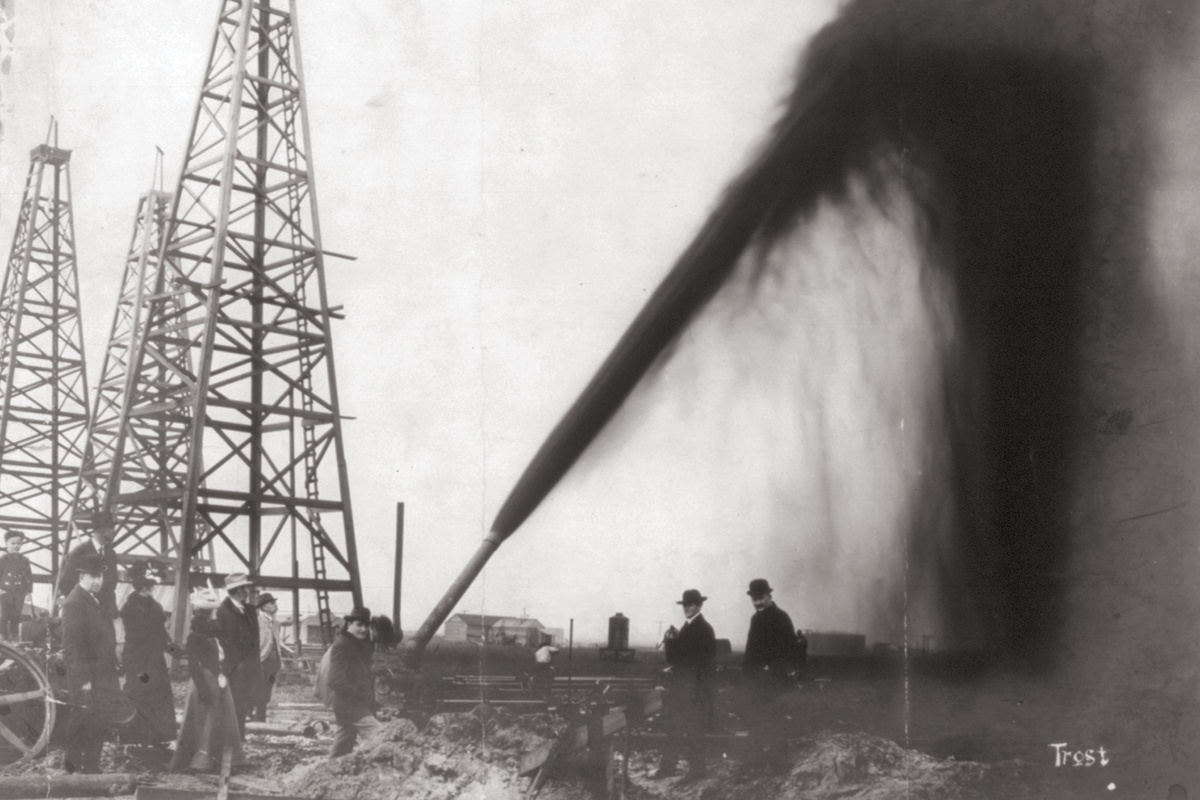For a three-person agency originally tasked with overseeing intrastate railways, the Railroad Commission of Texas has exerted an outsized impact on an unexpected market: oil. The commission’s story is one of power and influence that spans more than a century.
In the late 1800s, railroads were a dominant economic force, analogous to what the tech industry is today, according to David Prindle, professor of government at the University of Texas at Austin and author of the book Petroleum Politics and the Texas Railroad Commission. The industry was abusing its power, and a nationwide movement caused Congress to create the Interstate Commerce Commission in 1887 to regulate railroads. Texas followed suit by creating the Railroad Commission of Texas in 1891 to regulate railroads that did not cross the state line.
The story behind the curiously named commission getting into the oil regulating business begins in 1901 with the Spindletop oil strike, which made Texas one of the world’s top oil-producing areas. (The well was so prolific that it soon produced “more oil in one day than all the rest of the world’s oil fields combined,” says the American Oil & Gas Historical Society.)
This sudden oil wealth made Texans wary of Standard Oil, which had dominated the oil business in Ohio and Pennsylvania “by basically monopolizing transportation in the pipelines and then running the little guys out of business,” Prindle says.
After trying and failing to pre-emptively outlaw Standard Oil, the Texas Legislature hatched an innovative plan to protect Texas’ small oil producers. “Well, what are pipelines? Pipelines are transportation,” Prindle explains. “Well, we already have a commission regulating transportation, the railroad commission, so let’s let the railroad commission regulate oil and gas pipelines.”
When the East Texas oil field was discovered in 1930, chaos ensued because of the oversupply of crude that field produced, Prindle says. This oversupply caused prices to plunge, scaring producers. Prindle says there was a “huge fight” over whether the government would be able to regulate production from the wells.
The government won out over the oil producers. By 1935, the commission “had been given the authority to regulate production—that is, not just regulate pipelines but regulate the amount that each well could produce,” Prindle says. Railroad regulation was out, and oil and natural gas regulation was in.
From the early 1930s to the early 1970s, the commission’s goal was to stabilize the price of oil, as price volatility made it challenging for oilmen to plan. And by controlling how much a well could produce and where producers could drill, the commission achieved the price stability goal for about 40 years.
Texas wasn’t the only place in the world with oil, of course, so the commission’s influence began to wane as large reserves were discovered in the Middle East, Venezuela and Nigeria, causing Texas’ share of global production to decline.
Yet even as the railroad commission’s influence diminished, its price control model was being studied by another group interested in regulating its production to control prices—the group that became the Organization of the Petroleum Exporting Countries. The proto-OPEC hired the railroad commission’s chief engineer to show them how. That action helped set in motion the oil embargoes and gas wars of the 1970s.
Today, the commission has the same mandate and structure as in its heyday, albeit with less global influence. Periodically, lawmakers try to rename the commission to reflect its current mission, but the effort invariably fails. “I’ve twice been called to testify before a hearing of the Legislature,” Prindle says. “I put on my suit and I go down there—I’m the guy who wrote the book, and I say, ‘Well, yeah, if you want truth in advertising, change the name.’ And of course, then nothing ever happens.”
Robert Springer is a freelance writer who loves Tex-Mex and armadillos.


